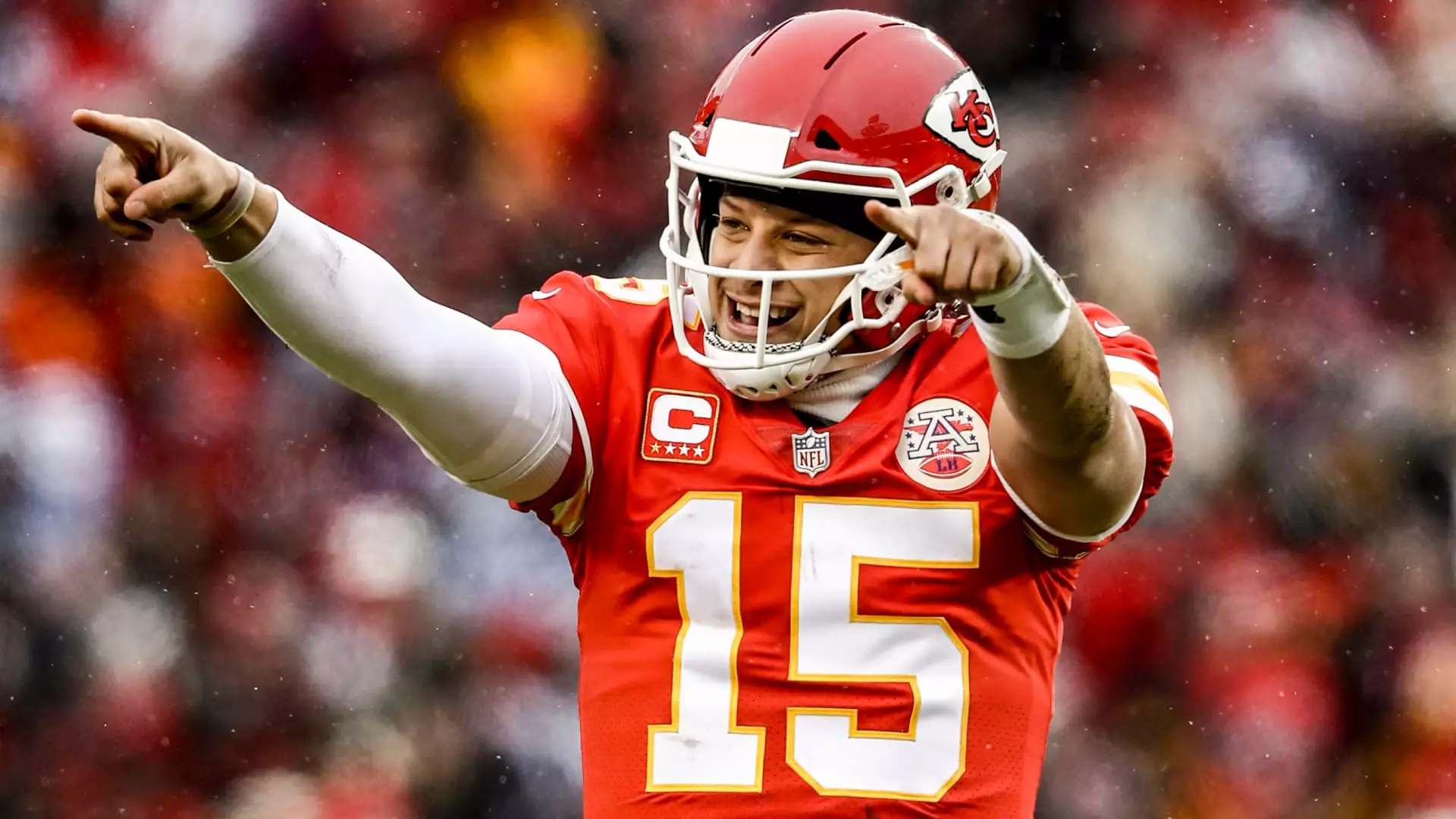In the ever-glittering world of professional sports, stars like Patrick Mahomes are often portrayed as innovative entrepreneurs, redefining what it means to be an athlete. Yet beneath this shiny veneer lies a shallow veneer of influence, masking how much of their “business ventures” are crafted more for image than genuine impact. Mahomes’ recent foray into coffee entrepreneurship, while seemingly progressive, functions more as a marketing ploy than a substantive push toward healthier lifestyles or industry disruption. It’s easy for fans and the media to be dazzled by his involvement—perhaps too easy—yet this superficial engagement warrants skepticism. Is Mahomes genuinely committed to changing the coffee game, or is he simply leveraging his fame to endorse a product that aligns with current health trends?
The truth is, behind every investor’s smile lies an underlying motive: brand enhancement and personal branding. For a league star, being a “coffee entrepreneur” sounds forward-thinking, but in reality, it’s a calculated extension of their fame—an accessory to their athletic persona. The proliferation of athletes venturing into business is often celebrated as a sign of their versatility, but too frequently, it’s just another revenue stream masked as activism. Mahomes’ endorsement of Throne Sport Coffee, which boasts low sugar and added electrolytes, suggests he’s capitalizing on the health-conscious zeitgeist, yet it remains to be seen if the product truly offers a disruptive alternative or simply rides the wave of current consumer preferences.
The Illusion of Authenticity and Influence
Mahomes’ narrative about developing a love for coffee during his NFL rookie year resonates emotionally, but it also highlights the manufactured authenticity that sports figures cultivate. The story of falling in love with the taste and making conscious health choices is crafted to align with the modern consumer’s desire for transparency and wellness. Yet, the broader implication is that Mahomes is capitalizing on the typical athlete’s journey—transforming a personal routine into a personal brand. His role as a ‘lead pitchman’ not only glorifies his influence but also subtly shifts the focus from his athletic prowess to his commercial appeal.
This commodification of personality extends beyond coffee. His investment portfolio, which includes stakes in various sports franchises and even Formula 1 racing, is often framed as a savvy business acumen. But are these investments truly strategic, or are they simply a means to maintain relevance across multiple markets? The underlying truth is that athletes’ ventures often serve their personal brand more than they serve any meaningful progression of those industries. Mahomes’ desire to claim ownership in Kansas City’s sports scene—whether through a future team stake or stadium decisions—appears aspirational, yet it reads more about maintaining influence than effecting substantive change.
The Underlying Power Dynamics in Sports and Politics
Mahomes’ comments about stadium renovations and the NFL’s schedule shifts reveal a superficial engagement with critical sports and league issues. The stadium debate, often portrayed as a community-centric decision, is arguably more about economic leverage and political influence. The NFL’s push for an 18-game season reflects a profit-driven agenda, with little regard for player health—yet Mahomes chooses to voice cautious reservations, perhaps to maintain his image as a conscientious athlete. Similarly, his commentary on international expansion, exemplified by the Brazil game, suggests he’s aware of the league’s global ambitions but remains silent on the human costs and the exploitation of international fan bases.
His centrist stance—balancing the league’s commercial interests with player welfare—indicates a strategic positioning rather than genuine advocacy. This ambivalence underscores the broader culture of sports icons who publicly support progress while privately acquiescing to league pressures and profits. Such figures are often caught in a web of conflicting interests: uphold their reputation, maximize their earnings, and claim moral integrity. Mahomes’ commentary exemplifies this balancing act, but it ultimately reveals a reluctance to challenge the oppressive structural realities of the sport they thrive in.
Reality Check: The Charade of Progress
While Mahomes’ ventures seem to cloak a genuine desire for positive change—be it healthier products or community engagement—the reality is that much of this remains superficial. The trendy obsession with wellness and global expansion often ignores the deeper issues of athlete exploitation, league greed, and the unequal distribution of wealth in sports. Mahomes, undoubtedly, is a talented quarterback and savvy businessman; yet, his words often reinforce the existing power structures rather than challenge them.
The NBA’s and NFL’s push for international markets, alongside the expansion of player demands for better health protocols, indicates a system resistant to fundamental reform. Mahomes’ cautious approach to these issues suggests he is more interested in maintaining a favorable public image than instigating meaningful change. The athlete-entrepreneur narrative is ultimately a mirror of the broader societal trend—celebrating individual success while turning a blind eye to systemic flaws.
In this manufactured universe of celebrity capitalism, Mahomes’ “investment” in healthier coffee and his cautious league politics exemplify the hollow promise of progress that is more about optics than substance. This is the true face behind the glossy press releases and social media posts—an industry that profits most when the issues remain unresolved, and players like Mahomes serve as figureheads rather than agents of authentic change.


Leave a Reply